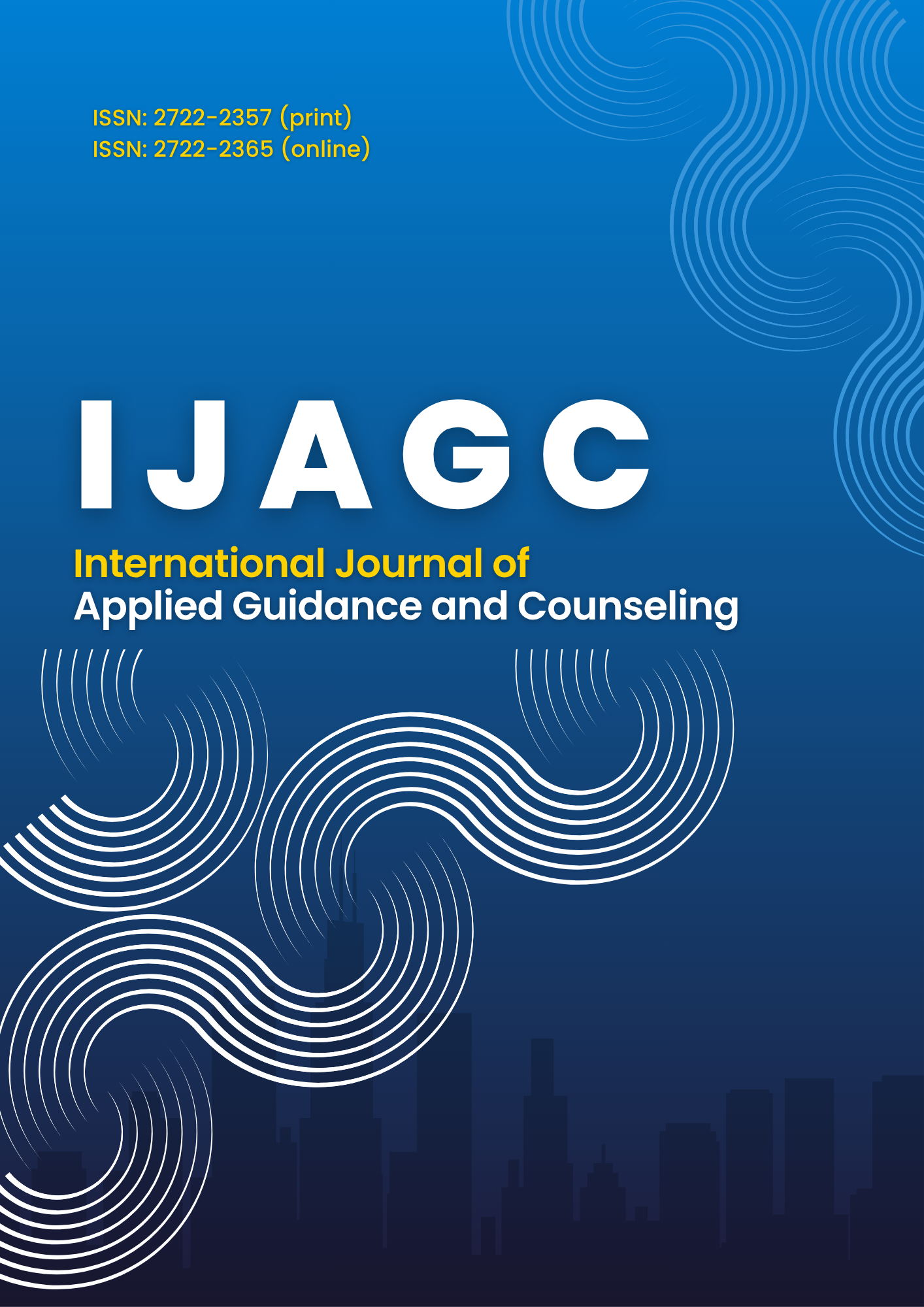Subjective Well Being Profile of College Students
DOI:
https://doi.org/10.26486/ijagc.v6i2.4674Abstract
Subjective well-being is one of the variables that can describe how an individual's level of life satisfaction. Individuals who have a high level of subjective well-being tend to feel happy and satisfied with their lives. This study aims to analyze the subjective well-being profile of college students. The profile of well-being will be seen based on gender, age, and level. This research is a quantitative research with survey research type. Data were collected from 202 college students from various study programs and levels that were determined using accidental random sampling. Data were collected using a questionnaire and analyzed using quantitative descriptive statistics. The results showed an overview of the subjective well- being profile of college students in terms of gender, age, and level. This research can be used as preliminary research for further research on the subjective well-being of college students.
Downloads
Published
Issue
Section
License
Copyright (c) 2025 Mitta Kurniasari, Budi Astuti, Diana Septi Purnama

This work is licensed under a Creative Commons Attribution-ShareAlike 4.0 International License.
Authors who publish with IJAGC: International Journal of Applied Guidance and Counseling agree to the following terms:
Authors retain copyright and grant the Insight right of first publication with the work simultaneously licensed under a Creative Commons Attribution License (CC BY-SA 4.0) that allows others to share (copy and redistribute the material in any medium or format) and adapt (remix, transform, and build upon the material) the work for any purpose, even commercially with an acknowledgement of the work's authorship and initial publication in Insight. Authors are able to enter into separate, additional contractual arrangements for the non-exclusive distribution of the journal's published version of the work (e.g., post it to an institutional repository or publish it in a book), with an acknowledgement of its initial publication in Insight.
Authors are permitted and encouraged to post their work online (e.g., in institutional repositories or on their website) prior to and during the submission process, as it can lead to productive exchanges, as well as earlier and greater citation of published work (See The Effect of Open Access).












